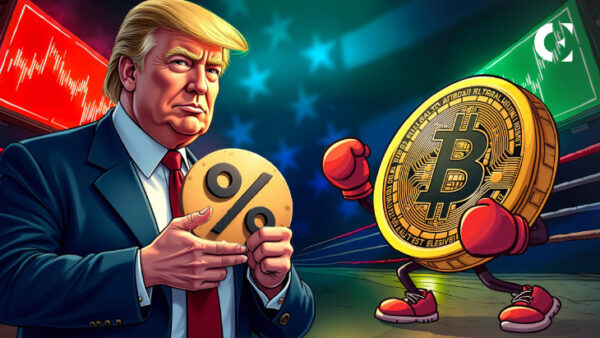- White House is unaware of the 90-day tariff suspension
- The reports were labeled as ‘fake news’
- Prominent figures in the financial sector advocate for a reconsideration of the tariff strategy
Reports had fueled confusion regarding a potential 90-day pause on tariffs announced by US President Donald Trump. Word initially spread suggesting the Trump administration was weighing a 90-day suspension of the newly imposed tariffs for all countries except China.
The speculation apparently stemmed from comments by White House economic adviser Kevin Hassett during a Fox News interview. Asked about a possible pause, Hassett offered a noncommittal response: “I think the president is going to decide what the president is going to decide.”
Why Did Markets Reverse Course So Quickly?
However, CNBC reported that the White House categorically denied the speculation, labeling the reports and rumors ‘fake news’.
The conflicting information had immediate effects on financial markets. Following the initial reports of a potential tariff pause, US stock futures and Asian markets experienced brief upticks. Yet, upon the White House’s denial of such plans, these gains were reversed, leading to renewed market declines.
This once again shows the sensitivity of global markets to trade policy developments and the important role of clear communication from policymakers.
What Do Financial Leaders Think About the Tariffs?
Reactions from all around the world to Trump’s tariffs are still not calming down. Alongside the turmoil, influential figures in the financial sector advocated for a reconsideration of the tariff strategy.
For instance, billionaire investor Bill Ackman publicly urged President Trump to implement a 90-day pause on the tariffs set to commence on April 9th. Ackman warned that proceeding without reassessment could lead to severe economic consequences, describing it as a potential “self-induced, economic nuclear winter.”
Then, JPMorgan’s CEO Jamie Dimon said that Trump’s tariffs will boost inflation and slow down an already weakening US economy.
Will the Tariffs Be Delayed?
Despite these calls for a delay, the administration remained resolute. Commerce Secretary Howard Lutnick confirmed that the tariffs will take effect as scheduled, stressing there would be no postponement. Lutnick defended them as essential for revitalizing US manufacturing and boosting national self-sufficiency in key industries.
The introduction of these tariffs represents by far one of the most significant shifts in US trade policy in recent decades. The current administration argues that the tariffs are necessary to address longstanding trade imbalances and to protect domestic industries.
Nonetheless, critics contend that such measures could escalate into a global trade war, potentially leading to increased costs for consumers and strained international relations.
Disclaimer: The information presented in this article is for informational and educational purposes only. The article does not constitute financial advice or advice of any kind. Coin Edition is not responsible for any losses incurred as a result of the utilization of content, products, or services mentioned. Readers are advised to exercise caution before taking any action related to the company.







